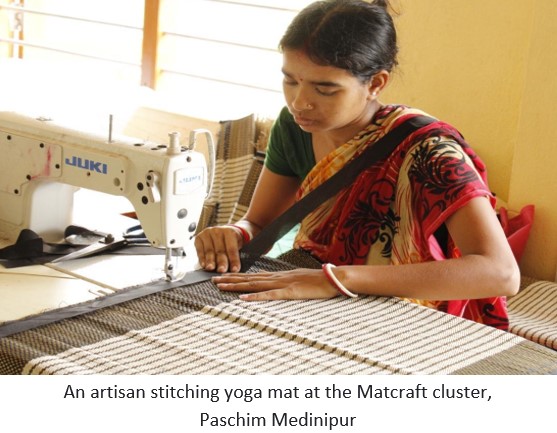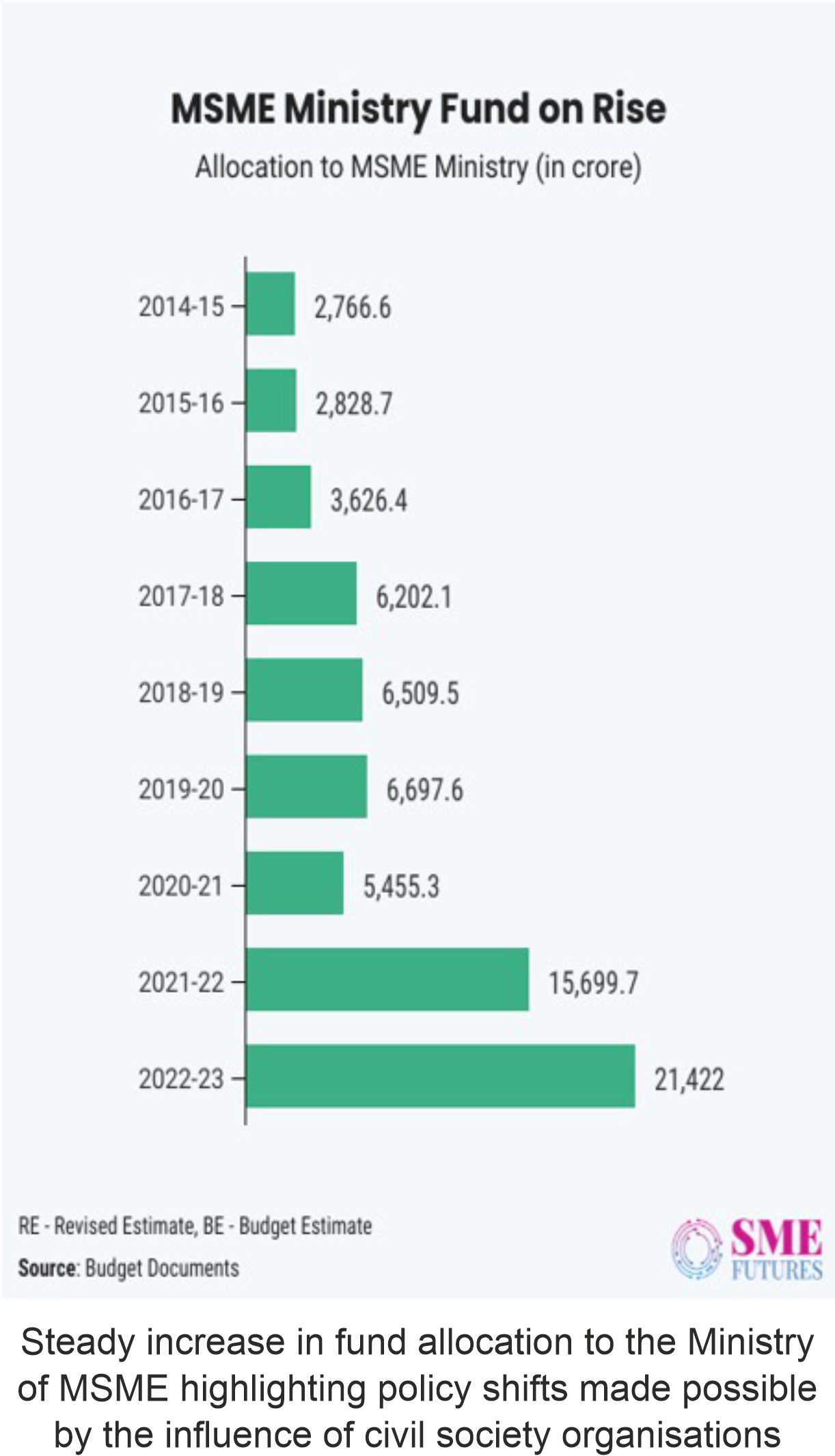|
Overview For infrastructure and investment, a budget has been allocated to promote One District One Product, Geographical Indication products and handicrafts that are off-shoots of the MSME sector. The Startup Village Entrepreneurship Programme, the sub-scheme of the National Rural Livelihoods Mission of the Ministry of Rural Development, intends to promote self-employment by setting up women-owned producer collectives. To further boost the entrepreneurial culture, Rural Self Employment Training Institutes are providing entrepreneurship development education to rural youth. Under the Pradhan Mantri Vishwakarma Kaushal Samman, a package of assistance has been conceptualised for artisans and craftsmen to set up collective enterprises. The new programme will allow the artisans to improve the quality, scale and reach of their products while also integrating these into the MSME value chain. The scheme’s components include access to advanced skill training, knowledge of modern digital techniques and efficient green technologies, brand promotion, linkage with local and global markets, digital payments and social security. Making Entrepreneurship Possible Development Alternatives works on entrepreneurship development in the energy, water and climate sectors that responds to the seven priorities listed in the budget. To take innovations in entrepreneurship to scale, Development Alternatives’ collaboration with its partners has resulted in the setting up of 8000+ enterprises1, of which 35% are collective enterprises. These enterprises have created 37,000+ jobs in the local economy, including 9000+ livelihoods for women artisans and farmers. The enterprises cover all three sectors of farm, off-farm and non-farm. To further enhance enterprise development, the entrepreneurs have accessed credit worth INR 489.38 million2 through Development Alternatives’ phygital platform (udyaME.in), which offers financial, technical, marketing and capacity-building support services to set up green enterprises. Some of these enterprises include integrated fisheries-cum-backyard poultry models, vermicomposting and women-led e-mobility networks, which cater to all three aspects of the Triple Bottom Line. Development Alternatives is also promoting integrated enterprise models around water bodies in Bundelkhand in convergence with the foundations of financial institutions.
A Robust Women’s Collective
The Way Ahead The partnership between civil society organisations and the government can result in micromovements of change for the economy such that many more can be included in the purviews of entrepreneurship by scaling in convergence the technical expertise of NGOs with government initiatives. In the macro vision, Development Alternatives and its partners can build strong relationships with the Ministry of Rural Development and the Ministry of Skill Development and Entrepreneurship for building an entrepreneurial culture in the hinterlands of the country, which foster the job creators of tomorrow. Websites
https://www.downtoearth.org.in/video/economy/union-budget-2023-24-key-highlights-employment--87465 Endnotes 1 Data from Sustainable Enterprise Domain, Development Alternatives Group, April 2022− February 2023. More than 8000 enterprises have been set up and supported. 2 As on 1 March 2023
Col Raman Thapar
Smriti Ahuja
Rashika Sharma |

 The Matcraft cluster in the
Pashchim Medinipur district of West Bengal is a 500-women-led handicraft
collective. This is a model cluster as all green technological
solutions, such as rainwater harvesting, water recycling, kitchen
gardening and solar energy, are practised at the Common Facility Centre.
The artisans make a wide variety of utility products from mat grass
including yoga mats, handbags and coasters. These products are marketed
under the brand ‘Medini Handicrafts’ and help the artisans earn an
average monthly income of INR 12,000.
The Matcraft cluster in the
Pashchim Medinipur district of West Bengal is a 500-women-led handicraft
collective. This is a model cluster as all green technological
solutions, such as rainwater harvesting, water recycling, kitchen
gardening and solar energy, are practised at the Common Facility Centre.
The artisans make a wide variety of utility products from mat grass
including yoga mats, handbags and coasters. These products are marketed
under the brand ‘Medini Handicrafts’ and help the artisans earn an
average monthly income of INR 12,000.